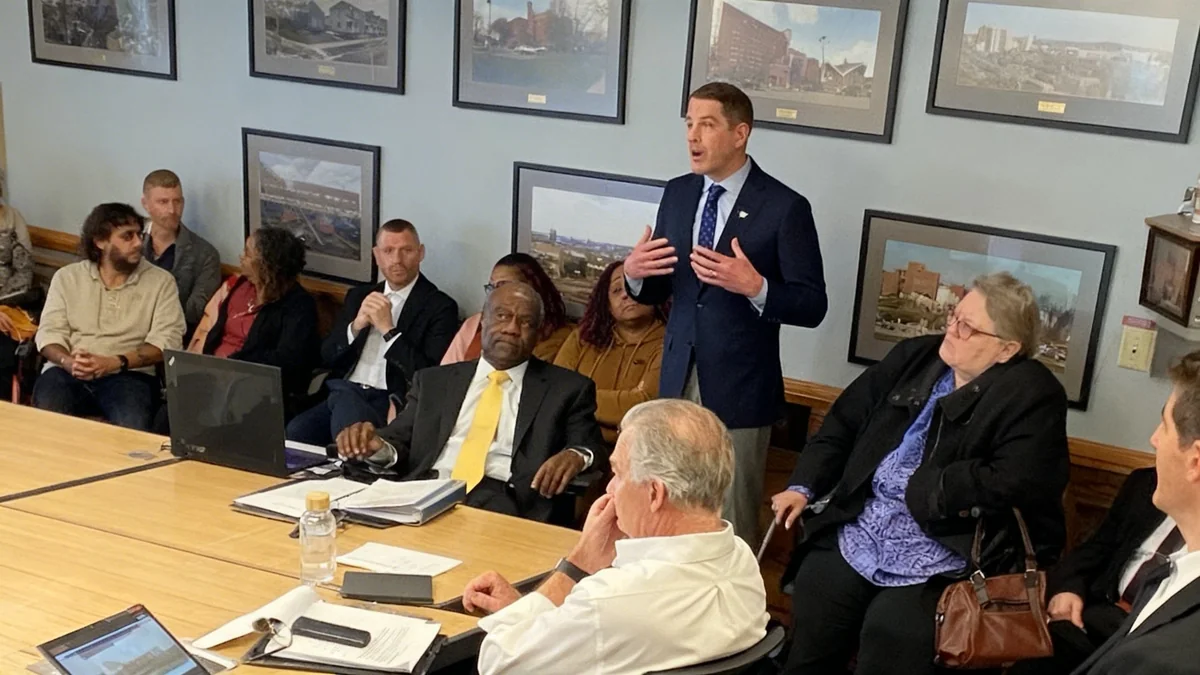Officials in Barnstable County are evaluating a new transfer fee on high-value real estate transactions to generate funds for affordable housing. The Cape Cod Chamber of Commerce has expressed conditional support for the measure, highlighting the region's unique housing challenges while proposing specific adjustments to protect local businesses.
The proposal, currently under discussion by the Barnstable County Assembly of Delegates, would allow individual towns to opt-in and collect a percentage-based fee on property sales exceeding a certain threshold, potentially $1 million or more.
Key Takeaways
- Barnstable County officials are considering a real estate transfer fee on luxury property sales to fund affordable housing initiatives.
- The proposed fee could range from 0.5% to 4% on sales over $1 million, with towns having the ability to opt in.
- The Cape Cod Chamber of Commerce supports the concept but recommends exempting commercial properties and re-evaluating the $1 million sales threshold.
- Data shows 37% of Cape Cod's housing stock consists of second homes, and over 30% of the local workforce commutes from off-Cape.
Details of the Proposed Transfer Fee
The Barnstable County Assembly of Delegates is in the preliminary stages of debating a real estate transfer fee aimed at creating a new revenue stream for workforce housing. While a formal ordinance has not yet been drafted, discussions have centered on a flexible structure that empowers local municipalities.
Under the current framework being considered, towns across Cape Cod would have the option to adopt the fee. The proposed rate could fall anywhere between 0.5% and 4%. This fee would apply to the portion of a real estate sale that exceeds a set value, which officials have suggested could start at $1 million.
A key component of the discussion is local control. Delegates have emphasized that towns could potentially set their own thresholds higher than the $1 million baseline, allowing them to tailor the policy to their specific real estate markets.
What is a Real Estate Transfer Fee?
A real estate transfer fee, or tax, is a one-time charge imposed on the transfer of property ownership. It is typically calculated as a percentage of the sale price. These fees are often used by state and local governments to fund specific public services, such as infrastructure, conservation, or, in this case, affordable housing.
Business Community Voices Conditional Support
The Cape Cod Chamber of Commerce has entered the conversation, signaling its support for the underlying goal of the proposal. Paul Niedzwiecki, the CEO of the Chamber, addressed the Assembly of Delegates, stating that the organization recognizes the urgent need to address the region's severe shortage of workforce housing.
Niedzwiecki acknowledged that the housing crisis is a national issue but emphasized the distinct pressures faced by the Cape. He explained that the region's economy and housing market are heavily influenced by its status as a premier vacation destination.
"We know it’s not unique to the Cape or unique to the country. But the way it hits the Cape is unique, because we are a second-homeowner community," Niedzwiecki stated during the Assembly meeting.
This unique characteristic, he argued, creates a competitive and expensive market that prices out many of the workers essential to the local economy. The Chamber's support, however, is not without important qualifications and suggestions for refinement.
Cape Cod's Housing Market by the Numbers
The housing shortage on Cape Cod is not just anecdotal; it is supported by clear data presented by the Chamber of Commerce. These figures paint a picture of a market heavily skewed away from year-round residents and the local workforce.
Cape Cod Housing Statistics
- 37 percent of the total housing stock on Cape Cod is classified as second homes.
- 12 percent of homes are currently utilized as short-term rentals.
- Over 30 percent of the Cape's workforce commutes daily from communities across the Bourne and Sagamore Bridges.
These statistics underscore the fundamental challenge: a significant portion of available housing is not occupied by the people who work in the community. The high number of commuters is a direct consequence, leading to increased traffic, environmental impact, and a disconnected labor force.
Key Concerns and Proposed Adjustments
While supporting the initiative's intent, the Chamber of Commerce outlined two major recommendations to ensure the fee does not inadvertently harm the local economy. Niedzwiecki urged delegates to consider specific exemptions and to re-examine the financial trigger for the fee.
Exemption for Commercial Properties
The first major recommendation is to exempt all commercial property sales from the transfer fee. Niedzwiecki argued that including commercial real estate could place an additional burden on small businesses, which are already navigating a challenging economic environment. The Chamber believes the focus should remain squarely on the residential market, which is the primary driver of the housing affordability crisis.
Revisiting the $1 Million Threshold
The second point of concern is the proposed $1 million threshold for applying the fee. According to Niedzwiecki, this figure may be too low given the current state of the market. He pointed out that the median listing price for a single-family home on Cape Cod reached approximately $900,000 in 2024.
With a median price so close to the proposed cutoff, a $1 million threshold could impact a broad segment of the market rather than just the high-end luxury tier. The Chamber suggests that a higher threshold would better target the properties most influencing market inflation without affecting more typical homebuyers.
A Model for Using the Funds
Beyond how the revenue is collected, the Chamber of Commerce also offered a vision for how it could be spent. Given that Cape Cod is already heavily developed, constructing new large-scale housing projects is often difficult and costly.
Instead, Niedzwiecki suggested a strategy focused on preserving existing housing for local workers. He referenced the InDEED program in Vail, Colorado, as a potential model. This type of program uses public funds to purchase deed restrictions on properties for sale.
A deed restriction is a legal agreement that limits the use of a property. In this context, it would require the home to be owned and occupied by a year-round resident who works locally. This approach helps maintain the availability of workforce housing within the existing community fabric, rather than relying solely on new construction. The funds generated by the transfer fee could be used to acquire these restrictions, effectively converting market-rate homes into dedicated workforce housing.





